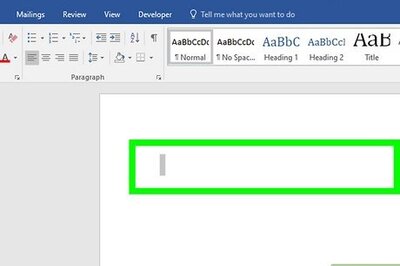
views
Amid a much discussion over the drug-related cases in the country, the Union Ministry of Social Justice and Empowerment has suggested the Department of Revenue a few days back to review the Narcotic Drugs and Psychotropic Substances (NDPS) Act and sought to “decriminalise” people in possession of small quantities of drugs for their consumption.
The ministry has suggested the Revenue Department to amend the Act by treating those who use drugs or are dependent on them as “victims” and sending them to de-addiction and rehabilitation centers instead of prison, as reported by The Indian Express.
ALSO READ: How to Fight Drug Abuse in Youngsters: Crack Down on Suppliers, Build Affordable Rehabs
As per the report, the Department of Revenue had last month asked several ministries and departments, including the Union Home Ministry, Union Health Ministry, Union Ministry for Social Justice and Empowerment, agencies like Narcotics Control Bureau (NCB) and Central Bureau of Investigation (CBI), to suggest amendments to the law, if any, along with their reasons.
WHAT IS NDPS ACT?
The Government of India enacted the Narcotic Drugs and Psychotropic Substances Act, or NDPS Act, to control addictive drugs and prohibit their possession, dispersion, sale, import, and trade in the country.
ALSO READ: ‘Sent to Forensics, Then Burnt’: Here’s What Happens to Seized Drugs
The bill was introduced in the Lok Sabha on 23 August 1985. It was passed by both the Houses of Parliament, received assent from then President Giani Zail Singh on 16 September 1985, and came into force on 14 November 1985. The NDPS Act has since been amended four times — in 1989, 2001, 2014 and 2016.
The Act extends to the whole of India and it applies also to all Indian citizens outside India and to all persons on ships and aircraft registered in India.
WHAT IS THE PUNISHMENT FOR POSSESSION/USE OF DRUGS UNDER NDPS ACT?
Punishment prescribed under the NDPS Act is based on the quantity of drugs seized. Following amendments, it “grades punishment into three categories depending on the quantity of drugs seized and also provides for judicial discretion as far as the severity of punishment is concerned”.
To take the example of cannabis, the punishment for the cultivation of any cannabis plant may extend to rigorous imprisonment for up to 10 years and can also involve a fine which may extend to Rs 1 lakh.
Further, the production, manufacture, possession, sale, purchase, transportation and illegal trafficking of cannabis envisages punishment based on the quantity seized. Thus, punishment for the seizure of a “small quantity” of cannabis can involve rigorous imprisonment of up to one year and include a fine of up to Rs 10,000. When the seizure is of a “quantity lesser than commercial quantity but greater than small quantity”, the convict can be awarded rigorous imprisonment of up to 10 years and be asked to pay a fine of up to Rs 1 lakh.
Possession of a commercial quantity of cannabis is to be punished with rigorous imprisonment for a term that “shall not be less than 10 years but which may extend to 20 years” while a fine “which shall not be less than one lakh rupees but which may extend to two lakh rupees” can also be imposed with the court authorised to also “impose a fine exceeding two lakh rupees”.
In Section 27, the Act also deals with punishment for consumption of “any narcotic drug or psychotropic substance”, laying down that when the drug consumed is “cocaine, morphine, diacetylmorphine or any other narcotic drug or any psychotropic substance”, the punishment would involve “rigorous imprisonment for a term which may extend to one year, or with fine which may extend to twenty thousand rupees”.
For any other drug not included in the above list, the punishment will be for up to six months, and can include a fine of up to Rs 10,000.
According to the Department of Revenue, possession of up to 1kg is termed “small quantity” of cannabis with “commercial quantity” involving a seizure of 20kg or more. For “charas/hashish”, small quantity is up to 100gm while commercial quantity is 1kg or more. Separate small/commercial quantity thresholds have been prescribed for the various drugs banned under NDPS Act.
The Act takes a serious view vis-a-vis repeat offenders, prescribing rigorous imprisonment of up to “one and one-half times of the maximum term” of imprisonment for that offence and also a fine “which shall extend to one and one-half times of the maximum amount” of fine. Repeat offenders are also liable to even face the death penalty if they are convicted again of a similar offence depending on the quantity of drugs seized.
Read all the Latest News , Breaking News and IPL 2022 Live Updates here.



















Comments
0 comment